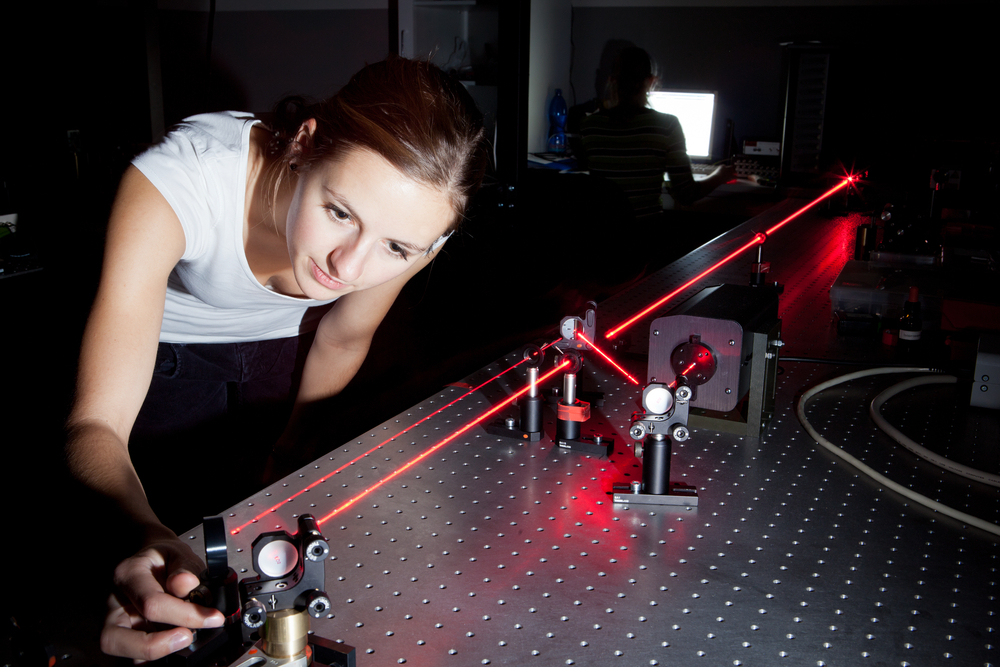AIP Conference Proceedings is a serial published by the American Institute of Physics since 1970. It publishes the proceedings from various conferences of physics societies. In 2019, an article posed the question “How successful are women in physics in Ireland?”. It concluded that women in Ireland are very successful when they study physics. Yet it was quick to highlight that despite this, the number of women remains “stubbornly low”. To reflect on this, we’ve decided to take a look at why the numbers of girls studying Physics at Leaving Cert Level is so low.
State Examinations Statistics have reported that on average 25% of the annual Leaving Certificate physics students are girls. These numbers of girls studying Physics are more or less reflected at third level, according to data collected by National University Ireland Galway, Ireland.
In a 2018 article in The New Statesman, Women in physics: Why there’s a problem and how we can solve it, Valerie Jamieson stated that “physics was the second most popular subject for boys at A level, yet the 18th most popular for girls.” Julia Higgins, president of the Institute of Physics sums up the consequences. “Many girls who could have had careers in physics are dropping out. It’s a terrible shame that we’re losing that amount of talent.”
That lost talent is compounded by the success that the girls who do study physics actually achieve. In 2016, for example, according to the AIP article, 48% of girls obtained A or B grades in the higher-level Physics paper, compared with 44% of boys.
So despite the success that many girls who do study physics achieve at school and in college, why do the numbers of girls studying Physics at Leaving Cert level remain so low?
Research undertaken has often cited a lack of confidence as a factor in girls’ decision to not take physics. In general, it has been cited as an important factor in the gender gap that exists between boys and girls pursuing STEM subjects to Leaving Cert level. Girls perform at least as well, if not better, but they are not as confident in their ability to learn STEM subjects as boys.
Why is this? Where does this lack of confidence come from? Let’s take a look at 2 contributing factors.
It’s interesting to note that the AIP paper referenced above quotes a 2015 report from Accenture which points towards the influence of parents, stating that a parental lack of knowledge of opportunities in science, technology, engineering, and mathematics was a major factor in a lack of drive behind girls enthusiasm to pursue Physics. A worrying statistic from the report is that one-third of parents and teachers (29%) still perceive STEM disciplines as more closely fitting boys’ brains, personalities and hobbies. It would appear that gender bias amongst parents still has a detrimental role to play in girls deciding what subjects of study to pursue.
What we can infer from this is that without the right environment, support, information and encouragement, the subject of physics falls victim to stereotypes and unconscious biases that result in many girls turning away from it as a subject to study.
A final and vital point to make concerns role models. Time and time again, we learn how essential role models are on our children’s development. And it is no different in education. Research undertaken by Microsoft in 2018 reported that there is a clear link between role models and an increased passion for science, technology, engineering and maths subjects, with more interest in careers in these fields, and greater self-confidence, which links back to our previous point.
Obviously there is the need to expose girls to positive role models, to highlight and bring into focus the achievements of the likes of Marie Curie, Lise Meitner, Maria Goeppert-Mayer, Rosalind Franklin, Mae Jemison, Michelle Simmons, our very own Jocelyn Bell Burnell and many more. Putting a spotlight on role models is an essential step to take to inform and encourage girls to see the possibilities of pursuing physics both in school and as a career.
Interested in Physics? Take a look at third-level course around the country here.
Whichcollege.ie is a national database of universities, colleges, institutes and providers of third level, CAO and PLC courses in Ireland. We operate a national search database of courses and colleges.












Comments